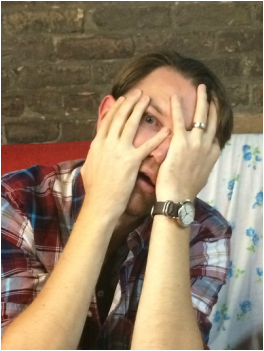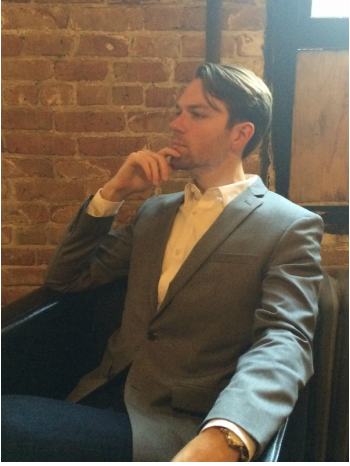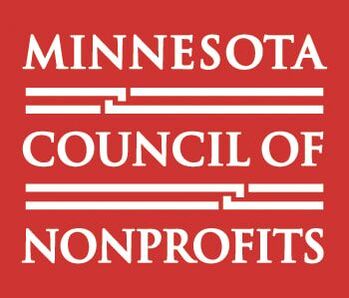Outer Self: So the story is really up in the air, but the idea is that there won’t really be a story, right? Or at least, not a full narrative arc story.
Inner Self: Right, and we should also say that it’ll be staged immersively in an actual apartment. Outer Self: Immersive staging. It’s all the rage these days. Inner Self: Indeed it is, but I think in certain respects, House Party will be very different than some recent examples of immersive theater, like Sleep No More in New York or Live Action Set’s Crime and Punishment at the MN Fringe Festival. Outer Self: How will House Party be different? Inner Self: Mostly in style. I haven’t seen Sleep No More, but from the coverage of it, it seems to have a heightened, dark vibe (and don’t ge me wrong--looks really, really cool, as was Crime and Punishment!). House Party will be what I’ve been calling hyper-realistic. Outer Self: Yeech, that sounds like it could be booooriiiiing…. Inner Self: Yeah, I know, but hear me out! I’m really interested in the mundane. Like, I love eavesdropping on conversations in coffee shops. A lot of the time, you don’t hear people clearly articulating their interesting opinions on whatever. Often, you hear people struggling to put into words the complex often confusing things they feel inside. Or if they’re really articulate, it almost feels kind of fake, like they’re presenting an opinion that’s overly simplified. I just sense these interesting tensions in people’s inner and outer selves. Outer Self: Are you saying you want to fight me? Inner Self: No, not at all. The tension isn’t animosity or struggle, but more like there are all these weird things swirling inside the stew of our souls all the time, but we don’t always want to (or should) put that out there, so our outer selves are much more varnished. Outer Self: That makes it sound like you think I’m fake. Inner Self: No, I admire you a lot. Like, I feel like if other people interacted with me more than you, they would be repulsed. And just because I’m inner and you’re outer, doesn’t mean you’re inferior or less true. We’re just different parts of the whole. We need each other. Outer Self: Aww, that’s sweet. Inner Self: I’m not a complete monster. I can be sentimental. Outer Self: So would you say that this tension between inner and outer selves is the theme of the show? Inner Self: I actually really don’t like the idea of imposing a theme or whatever on a project. I mean, I really hate this mindset that there are themes and symbols and the job of the audience is to “get it,” like they ace the test or whatever. Obviously, I have these ideas that I want to explore and guide creative decisions, but I also want the characters to really drive the work. For me, character is at the heart of everything. I’m working with the actors in the workshop very directly to create and fully flesh out their characters. In the show, there’ll be action with characters going on simultaneously throughout the apartment, and the audience will get to choose where they go and what they follow. The script will come out of the workshop, but I imagine it’ll feel a lot like a house party. Random meetings and conversations and music and snacks and booze, and my hope is that if the characters are so fully realized and immediate, the audience won’t need plot or unnatural arcs shoe-horned into the script. Outer Self: So why the setting of a house party, since that’s a creative decision that’s already been made? Inner Self: I have a lot of anxieties going to parties, and I know a lot of friends who are the same way. Like, we just dread going, but we’re also excited about the idea of connecting with other people. Outer Self: Like hooking up? Inner Self: Yeah, for some. Or it could be platonic. I think that for people wanting to meet others and feel like they have a group or community around them, parties are still one of the best ways to meet or maintain those connections. Outer Self: So what are these characters like? Inner Self: Well, like I said, I’m working with the actors to find that out, and we’re still in the early stages of that. But based on the actors I recruited, with a couple exceptions, the characters will be around the transition from their 20s to their 30s. Outer Self: Which is what you and I are going through right now. Inner Self: Yeah, and a lot of our friends. Company member Rachel Nelson told me about this Gertrude Stein quote, which describes turning 30 as where “we exchange great dim possibility for small hard reality.” Outer Self: Yikes. That’s depressing. Inner Self: Uh, maybe, yeah, I get that, but I also think there’s something energizing about it. Like, at least it maybe means I’m feeling more focus on what’s important to me and what I’m doing. But I’m interested in seeing how these various characters approach this party and this life transition. And we have a few older characters, too, and I think they’ll provide some interesting differences. Outer Self: Yes, and we should give a shout-out to the actors on board: Rachel Austin, Seth Conover, Heidi Jedlicka Halvarson, Foster Johns, Mason Mahoney, Adelin Phelps, Paul Rutledge, Maggie Scanlan, Matt Sciple, Michael Sung-Ho, and Dana Lee Thompson. Inner Self: Yes, a lot of things make me feel anxious when it comes to the uncertainty of devising new work and operating in a different style of staging for the first time, but the awesomeness of this cast is unqualified and makes me really excited for rehearsals to start. Outer Self: Alright, for a conversation that was mostly about the weird/confusing things people feel on the inside and maybe even the outside, it’s probably good to wrap up on a note of excitement and hope. Inner Self: Sounds good. Thanks. Outer Self: Back to Facebook to promote this blog post and hopefully many people will like and comment on it! Inner Self: *palm to forehead and heavy sigh*
0 Comments
Leave a Reply. |
Archives
November 2020
|



 RSS Feed
RSS Feed




